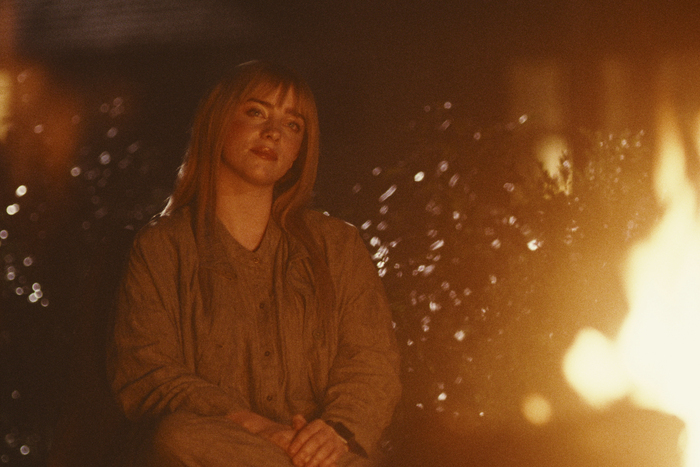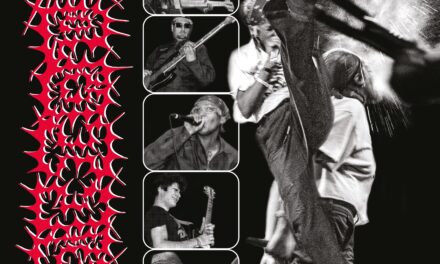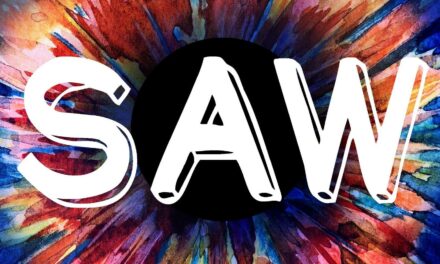This review contains spoilers.
You cross the hive, you get stung.
What would happen if a Twitter stan took their loyalty to a new level and began to eliminate the nay-sayers and their own personal haters through calculated acts of murder? Co-created by the director and producer Donald Glover and writer Janine Nabers, “Swarm,” released on Amazon Prime on March 17, dives headfirst into the realm of surrealist horror-comedy with an insatiable appetite for violence. The show is led by a star-studded cast and set in stumblingly-beautiful landscapes of the American South and Pacific Northwest. In an almost anthology-like unfolding of a serial killer’s fairytale, the limited series has taken social media by storm but is widely misunderstood.

Courtesy of Prime Video
“Swarm” isn’t subtle in its nods to Beyoncé and her fanbase, who call themselves the BeyHive. The main character and serial killer Dre (Dominique Fishback) is a passionate fan of the fictional star Ni’ Jah (Nirine Brown), who not only has the elusive goddess-like presence of a generational wonder but also appears in fictional articles clearly parodied from press coverage of Beyoncé herself. And Dre is willing to do more than just attend every concert and post obsessively on Twitter: she’ll defend Ni’ Jah to the death.
While the series could be taken as a simple satirical comedy about stan culture, it brings much more to the table upon closer scrutiny. The series’ central theme is less entrenched in vengeful bloodthirst than it is in a deeply-internalized loneliness and, more importantly, an insatiable hunger. Dre clearly has a warped relationship with food, as she ravenously stuffs herself with whatever she can get her hands on after each brutal kill. When she comes face to face with her idol and supposed friend, all she can think to do is attempt to consume her in a trance-like hallucination with very real consequences.
Dre’s dreamlike journey through America’s colorful underbelly brings to light the danger of a culture of consumption. It highlights the particularly insidious way in which the entertainment industry capitalizes on a society that commodifies attention. Alienated young people turn to the digital world to find community when the real one leaves them feeling isolated and alone.
That online community is a harmful one, however — it insists on the right to exploit those who turn to it as a last resort. It sucks an unsuspecting young person in with colorful promises of community — like that of a fandom or fanbase — and keeps its grip tight by chemically training their developing brain. Not only does it condition a demand for constant bite-sized stimulation, but also presents withdrawal-like symptoms upon attempts to leave. Digital communities can also create echo chambers like that of the Ni’ Jah’s fictional stan community, The Swarm, which can lean into hatred and vitriol … and potentially something more.
“Swarm” highlights how the entertainment industry relies upon the digital world to thrive. It insists that the industry is not only aware of its harmful potential but actually participates in the process — coercing young people into becoming less and less human until there’s nothing left but a brain trained to feed and be fed by an ever-hungry algorithmic cycle. More dystopian than satirical and more critical than cautionary, “Swarm” proves its point by telling a compelling story with style and personality, and in a particularly meta move, by going viral on Twitter.
The success of “Swarm,” however, is due largely to its brilliant cast. Fishback, who plays the infamous anti-protagonist, is a star. Already known for her performances in numerous productions including “The Deuce” (2017) and “Judas and the Black Messiah” (2021), she demonstrates the range of her acting chops in her genuinely unsettling portrayal. Her character, Dre, alternates between the subdued silence of a deeply troubled twenty-something and the burning rage of a stone-cold killer. Also impressive are the performances of Chloe Bailey and Billie Eilish, who prove that musicians can, in fact, enhance their careers with a calculated move from the stage to the screen, so long as they’re genuinely talented.
“Swarm” is also an exercise in cinematic beauty, as each episode illustrates landscapes with a gentle color, brings beautiful set designs to life and showcases impressive costume design. On top of visual beauty, the series is laugh-out-loud funny in a successful attempt at capturing the humor of the younger generation, hitting a target often missed by television writers.
If we weren’t already convinced enough about the creators’ dedication to the story, they even put together an EP for the fictional Ni’ Jah that is available on both Spotify and Apple Music. Led by the efforts of Glover himself and artist KIRBY, the project makes it all the more believable that Dre would kill for her beloved Ni’Jah — the music is actually good!
In the series’ final moments, Dre literally kills her way into a Ni’ Jah concert and storms the stage to meet the subject of her misguided parasocial relationship. In a surreal moment, Ni’ Jah invites Dre to join her on stage and later the pair weave through a swarm of fans and press to get to a limo, where Ni’ Jah embraces a tearful Dre, whose stoic expression doesn’t match the supposed glamor of the situation and gives the impression that the tears that flow down her face aren’t happy ones. The episode is titled “Only God Makes Happy Endings,” and it is clear that the series has granted the viewer access into Dre’s delusional mind — a comforting dream rather than the likely reality of her arrest and a bitter end. Interestingly, the series leaves us unsatisfied as it comes to a sudden close: we want more. Perhaps leaving the viewer with a twisted kind of hunger is “Swarm’s” final insistence about the culture we participate in, forcing us to come face-to-face with our own insatiable appetite.
Nathan Rubin is a Junior from the Carolinas double majoring in Film & Media Studies and English. Outside of being Arts & Entertainment Editor at the Wheel, Nathan is a Writing Editor for Alloy Literary Magazine and hosts a queer radio show on WMRE. When he's not staring blankly at a blinking cursor, you can find him watching way too many horror movies and drinking way too many Baja Blasts.





